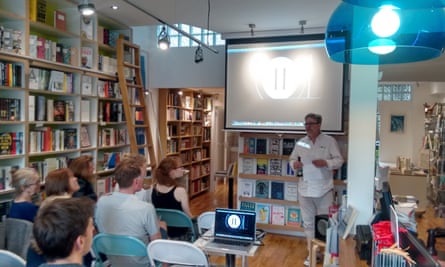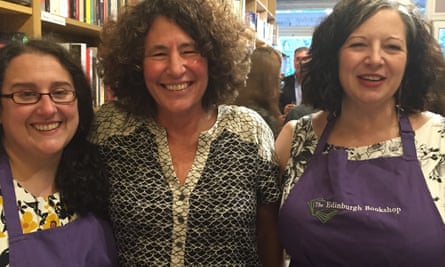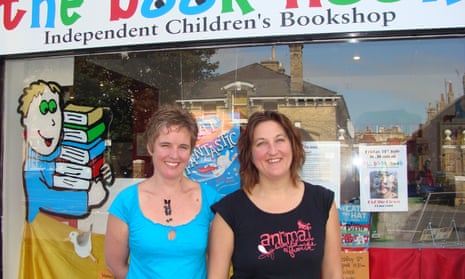It’s children’s story hour at the Book Nook in Hove and the owner, Vanessa Lewis, is doing a reading of Julia Donaldson’s rhyming picture book The Detective Dog.
“Sniff, sniff, sniff!” cry a gaggle of excited kids, in unison.
The parents sip lattes in a cafe at the back of the shop, while Lewis, a former teacher, bellows theatrically. Tucked away on a quiet street in the south coast town, the Book Nook is indicative of a growing breed of what Lewis describes as “destination” bookshops. People go out of their way to come here. “You can’t just exist as a bookshop nowadays; you have to make it a place where people want to hang out,” she says.
Last year, this small independent store beat national rivals such as Waterstones and Foyles to win children’s bookseller of the year. Battered over recent years by cut-throat competition from Amazon and the supermarkets, and by a huge rise in ebook sales, indie bookstores have had it tough. Now they’re fighting back, boosted by a surge in printed book sales – particularly children’s books – and innovative approaches to getting people through the door.
Figures to be released this month from Nielsen Book Research show that, in the first half of this year, Britons bought more than 78 million books. That’s almost 4 million more than in the same period in 2015. In cash terms, sales are up by more than 9%, the best performance in a decade – and sales of printed books are now growing faster than those of ebooks.
Sensing a resurgence, author Betsy Tobin and artist Tessa Shaw took the plunge and opened their bookstore, Ink@84, at the end of last year in Highbury, north London. But it’s a bookshop with a difference. Alongside the fiction and fancy drinks – including craft beers, gourmet coffee and artisan gin – they also screen films and run writing workshops, poetry evenings and children’s painting classes.

“We took over what used to be an estate agent, and people in the community practically fell on their knees with gratitude. They couldn’t believe something like this was opening on their doorstep,” says Tobin. They feel part of a renaissance of independent booksellers. Three have opened in this part of London in the past six months.
Four hundred miles north, the Edinburgh Bookshop has no cocktails on offer, but its owner, Marie Moser, will brew you a cup of tea if you look like you need one. “We’re always putting the kettle on for people,” she says. Four years ago, Moser, 50, took over what was then a struggling bookstore, risking most of her life savings. She has since doubled its turnover. “I never believed the book was dead. These things take a hundred years to shake out,” she says.
The key was increasing the range of books and allowing people to be more hands-on. “We’re not a precious bookshop.” Surprisingly for a bookshop owner, Moser isn’t against ebooks. She bought her mother an e-reader last year (they are light and you can zoom up the font, she says). But there is no love lost for Amazon: “If you say the A-word in my shop, you get a honk with our car hooter,” she jokes.

She is not alone in her dislike. “Our customers, on the whole, don’t want to use Amazon, and make a conscious choice not to,” says Tobin. “For the first couple of years, everyone was attracted by the low prices and overnight delivery. But then people started to think about what they were losing in terms of discoverability of books.”
Tobin believes the resurgence of printed books is linked to coverage of Amazon’s alleged tax avoidance and zero-hour contracts. Sales of e-readers such as the Amazon Kindle are in a tailspin. According to data group Euromonitor, the UK is now buying around half the number that it was five years ago.
Some analysts identify a cultural shift: “The migration to printed books is about people wearing their reading tastes on their sleeve. We had lost that. It’s like with music, and the resurgence in vinyl,” says Richard Cope, a trends consultant at research firm Mintel.
So is this a tipping point in the battle between printed books and ebooks? Is the ebook on its way out, even? The head of Nielsen Book Research, Andre Breedt, thinks not: “Ebooks are here to stay. Yes, growth has slowed, but it’s more that it has migrated to self-published books. Physical books will survive because they’re so culturally ingrained.”

Comments (…)
Sign in or create your Guardian account to join the discussion